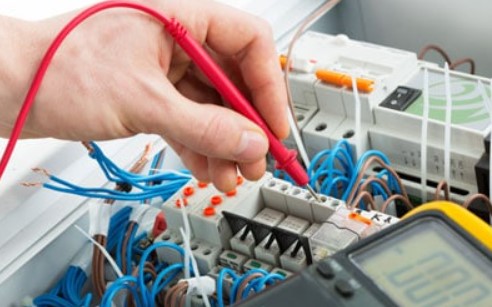3 reasons why the life saver goes off all the time
Why the lifesaver keeps tripping and how to fix it?
Lifesaving Trips: The common reasons for the circuit breaker tripping are due to overload, short circuit or earth fault. Go connect something or reach out to flick a switch and. . . nothing. The circuit breaker tripped again. Of course, you can simply reset the switch every time it clicks. Or, you can figure out what’s causing the problem, so you can fix it once and for all. Here is some information on the differences between a circuit overload; a short circuit and an earth fault to help you troubleshoot the circuit breaker and electrical systems.
How do you know if the lifesaver has gone off?
If the power supply was interrupted in a certain area of your home rather than in the whole house, the problem could be a tripped circuit breaker. Circuit breakers or fuses protect the electrical circuits in your home. All homeowners must know the location of the electrical panel or fuse box. The opening must be easily accessible and not blocked by shelving, boxes or furniture. If each circuit breaker or fuse is not already labelled, take the time to identify each circuit breaker or fuse and the specific area it controls.
This will save you time and effort if a circuit or fuse trips / blows. In case there are two switches or fuses for a zone, such as the kitchen, be careful to specify which part of the kitchen each of the two switches controls. For example, you can label one switch “kitchen appliances” and the other “kitchen counter sockets” or other designations as appropriate.
1. How do you reset the tripped circuit breaker?
To reset the circuit breaker trips, turn off the switch by moving the switch or the handle to the off position, then turn it back on. For safety, it is a good idea to stand back or to the side of the panel for safety, in case any sparks come from the switch when it is moved, or to wear safety glasses when resetting a switch. It is also smart to keep a torch and batteries near the electrical panel to help illuminate the area if the power is off. Rest the switch for a few minutes before disconnecting and connecting the items to determine what may have overloaded the circuit or caused the trip.
2. What is a circuit overload?
Loose or corroded wires or connections can cause a circuit overload when an electrical wire / circuit receives more amperage than it intends to handle. You can try disconnecting something from the circuit and instead use another circuit for power supply, if a circuit trips because it has overloaded.
To help determine the cause of the problem, disconnect all elements on the circuit before resetting the switch. After it’s reset and rested for a few minutes, turn on or plug in the items, one at a time, to determine what may have caused the overload. If circuit overloads continue to occur in your home on a regular basis, it may be necessary to install a new circuit and dedicated outlet for the area to handle the current load.
3. What is a short circuit?
A short occurs when a hot or live electrical wire and a neutral wire touch each other, causing a large amount of current to flow and overload the circuit. A short should always trip a breaker or blow a fuse and could also cause sparks, pops, and sounds. Problems can also cause such as loose connections, a slipped thread, or even damage from animals chewing on threads.
A faulty electrical switch, socket, device, appliance, plug, or cord can cause a short circuit. You can try to trace the short yourself or call a qualified electrician for assistance. Short circuits can be dangerous due to the high temperatures of the current flow, which can pose a fire risk; so proceed with caution if you think your home has a problem and seek professional assistance, especially if you can’t find the source.

Southampton Emergency Electrician Intervention
Emergency Intervention Electrician Southampton: In all cases, before lifting the switch to restore the electricity, it is important, indeed vital, to make sure that there are no very dangerous electrical leaks. Relying on a professional is always the best solution, to safeguard the operation of the electrical system and for the protection of our health.
The technicians we work with: Plumber Emergency Service Southampton, Locksmith Emergency Service Southampton, Electrician Emergency Service 24.
Call at 02382280103
